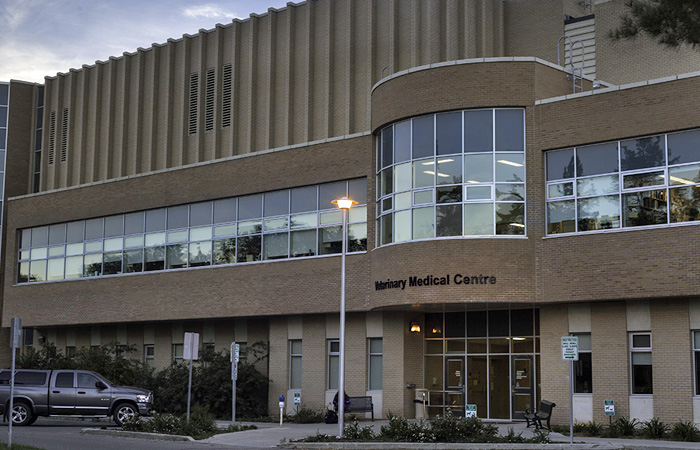The Manitoba government is expanding an interprovincial agreement (IPA) with the Western College of Veterinary Medicine (WCVM) at the University of Saskatchewan to provide increased annual funding for the acceptance of an additional five Manitoba students per year.
“By increasing our annual intake to 20 students from 15, we will support more students to pursue this important career path in order to help build our province’s animal health-care capacity for years to come,” said Advanced Education, Skills and Immigration Minister Jon Reyes. “We are committed to working with the college’s administration to realize this expansion effective in 2023-24.”
Through a funding contribution from the province every year, Manitoba currently receives 15 guaranteed subsidized seats at the Saskatoon-based WCVM for new entrants annually. The Manitoba government will increase its funding contribution to WCVM by $539,200 for the 2023-24 academic year to a total of $7,009,600, raising the number of Manitoba intake students to 20 from 15 and to a student quota – the number in the four years of the program – to 65 from 60. For the 2024-25 academic year, Manitoba’s contribution to the college will increase to $7,642,400 and bring the student quota to 70.
Manitoba’s increasing commitment will bring its intake to 20 seats from 15 seats every year until the province supports a total of 80 Manitoba students annually through the four-year program.
“Our government is committed to increasing the availability of quality veterinary care to all Manitobans, especially for the agricultural sector that is so vital to our provincial economy,” said Agriculture Minister Derek Johnson. “Animal health enables the success of our province’s agricultural industries, so investing in the training of more veterinarians, particularly those with large-animal expertise, will ensure this valuable support is available when needed.”
There is a great need for veterinarians in large-animal practice in rural Manitoba to support the agriculture industry, Johnson added. The additional seats for Manitoba students will be targeted for the support of commercial livestock, such as cattle, bison and pigs as well as sheep and goats, in rural areas to address this critical labour market need.
“The Manitoba Veterinary Medical Association (MVMA) applauds the Manitoba government for their investment in veterinary education,” said Dr. Keri Hudson-Reykdal, president, MVMA. “There is currently a large shortage of veterinarians in Manitoba. The commitment to educating more veterinarians will help alleviate the shortage over the long term. In the shorter term, the MVMA will continue to engage with government, veterinary professionals and other stakeholders to address the shortage of veterinary services in Manitoba.”
IPAs are negotiated with post-secondary institutions to secure seats for Manitoba students in programs that are cost-prohibitive to operate in the province, noted Reyes. Manitoba partners with Saskatchewan and British Columbia in providing funding to WCVM through the Veterinary Medicine IPA, established to ensure guaranteed access to veterinary education leading to doctor of veterinary medicine degrees for Manitoba students.
“We welcome this commitment from our provincial partners that will help to address Western Canada’s urgent need for more veterinarians,” said Dr. Gillian Muir, dean, WCVM. “The province’s support allows more students from Manitoba to achieve their dreams of a career in veterinary medicine. It is also a sound investment in protecting the health and wellness of all animals, from companion animals and wildlife to livestock that plays a critical role in Canada’s agriculture industry and the country’s economy.”
“Increasing the number of students who can attend vet school and enter the profession is the logical first step in addressing the veterinary shortage,” said Michelle Streeter, a fourth-year WCVM student who grew up in rural Manitoba. “I am also hopeful that Manitoba’s decision to increase seats draws more students from the Prairies who are interested in working in rural mixed animal practice, since agriculture is such an integral part of so many local communities.”
The increased support for more Manitoba students at WCVM is consistent with Manitoba’s Skills, Talent and Knowledge Strategy to improve alignment between advanced education and training institutions and Manitoba’s labour market needs. Johnson added it also supports Manitoba Agriculture’s commitment to improve resilience and preparedness for animal disease outbreaks.




